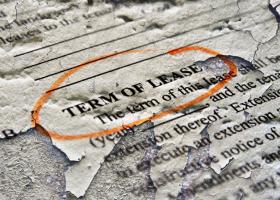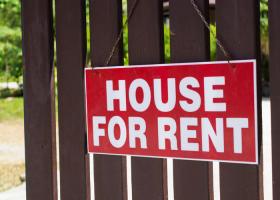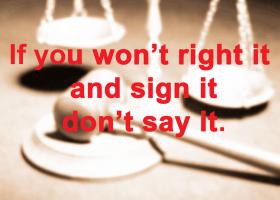What can you do if a tenant does not pay rent?

The Residential Tenancies Act allows a tenant to be evicted if they have not paid their rent. You can serve the tenant with a notice of non-payment of rent anytime after the day the rent is due. The notice you would serve is a Form N4 (available from the Landlord and Tenants Board) which gives the tenant fourteen days to pay the rent owing. If the tenant does not pay within that time period then you would have to file an application with the Landlord and Tenant Board to obtain an eviction order. The entire process to evict for non-payment of rent can take approximately two months.
When a landlord agrees to rent a unit to a person, the following information about rental payments should be very clear:
- the day that rent payments are due,
- how each rent payment is to be delivered to the landlord, and
- the acceptable methods for paying the rent.
If partial payment is accepted, the landlord can still take steps to collect the rest of the rent that is owing, including serving a notice that asks the tenant to pay the rent they owe, or that the tenant moves out of the unit.
Delivering the rent
In most cases, the tenant must deliver the rent payment to a place agreed to.
Once a decision is made about how rent payments should be delivered, it cannot be changed unless both the landlord and tenant agree.
How the rent payment is made
When a landlord and a tenant agree to enter into a lease agreement, they usually discuss how the rent will be paid. Payments are usually made by either cash or cheque.
Although the landlord and tenant can agree that the rent will be paid by post-dated cheques or automatic payments, a landlord cannot require the tenant to pay by either of these methods.
Withholding rent
A tenant should not withhold any part of the rent, even if the tenant feels that maintenance is poor or a necessary repair has not been done. A tenant could be evicted, if they withhold rent.
Landlord options if a tenant does not pay their rent:
The landlord can give the tenant a notice to pay the rent they owe or move. If the tenant does not pay or move in response to the notice, the landlord can apply to the Landlord and Tenant Board (http://www.ltb.gov.on.ca/) for an order to evict the tenant and to collect the rent that the tenant owes.
OR
The landlord can apply to the Landlord and Tenant Board only for an order to collect the rent that the tenant owes, and not ask the Board to evict the tenant. The landlord must give the tenant a notice in writing, in a form called a Notice to End a Tenancy Early for Nonpayment of Rent (N4 Form ).
If the tenant pays all the rent they owe before the landlord files an application to the Board, the N4 notice to end the tenancy is void and the tenant does not have to move.
If the tenant does not pay the full amount of rent owing, or they do not move out by the termination date in the notice, the landlord can apply to the Board for an order that:
requires the tenant to pay all of the money they owe, and
allows the tenant to be evicted, unless the tenant voids the order by paying all the money they owe.
Is Small Claims Court the best way to go about collecting unpaid rent?
You would proceed to Small Claims Court if the tenant has moved out owing rent. However, if the tenant is still in the unit and refusing to pay the rent, you should file with the Landlord and Tenant Board to obtain an order of eviction and an order for the arrears of rent.













